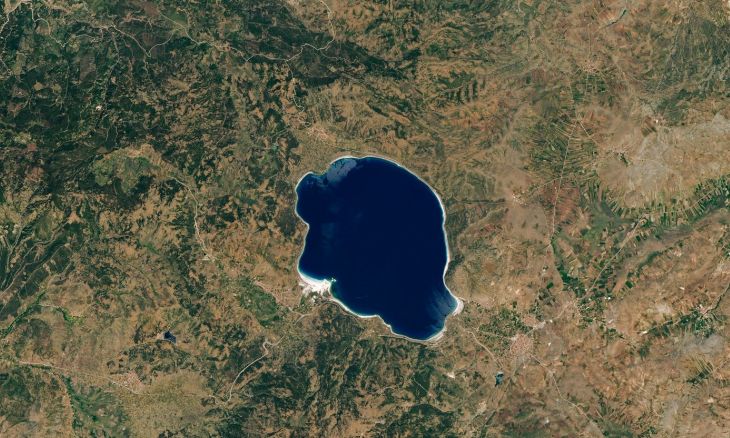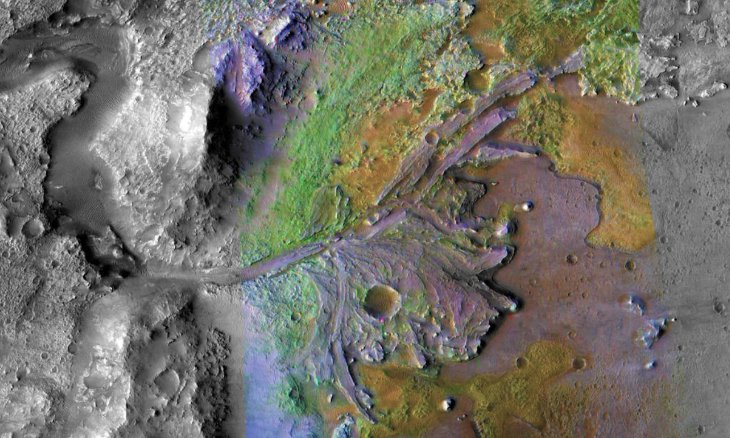Turkey's Lake Salda similar to Jezero Crater on Mars, says NASA
Lake Salda, dubbed Turkey's Maldives, will help NASA scientists guide the search for ancient life on Mars, as it shares many similarities with a dried-up lake bed on the red planet. Lake Salda is the only known lake on Earth that contains the carbonates and depositional features (deltas) similar to those found at Jezero Crater on Mars.
Duvar English
Lake Salda located in the southwestern Turkey shares similar mineralogy and geology as the Jezero Crater on Mars, NASA said.
“Though located a world away, Lake Salda, #Turkey, has geological similarities to Jezero Crater on #Mars. In fact, researchers even did field work at Lake Salda to prepare for #CountdownToMars and @NASAPersevere,” NASA Earth Observatory tweeted on July 31.
NASA Earth Observatory also released images of both Lake Salda and Jezero Crater to emphasize that researchers are using their understanding of Lake Salda to help guide the Mars 2020 mission.
Though located a world away, Lake Salda, #Turkey, has geological similarities to Jezero Crater on #Mars. In fact, researchers even did field work at Lake Salda to prepare for #CountdownToMars and @NASAPersevere. https://t.co/jrKoWrbVwe pic.twitter.com/xB2GGgYfbr
— NASA Earth (@NASAEarth) July 30, 2020
NASA’s Perseverance rover is currently on its way to Mars. The robotic astrobiologist is expected to land at the Jezero Crater in February 2021.
Scientists believed that Jezero Crater once contained a lake. It is a 45-kilometer wide ancient impact crater located in the northwest corner of a larger impact basin on Mars—essentially an impact crater within an impact crater. It is noteworthy because it once contained a lake, as evidenced by delta deposits.

It just so happens that Turkey's Lake Salda is the only known lake on Earth that contains the carbonates and depositional features (deltas) similar to those found at Jezero Crater.
The white shoreline around Lake Salda is comprised of sands and gravels that are dominated by hydromagnesite, which is similar to the carbonate minerals detected at Jezero.
In August 2019, NASA scientists collaborated with colleagues at the Istanbul Technical University and spent almost a week surveying Lake Salda's perimeter and surrounding area.
“A lot of our work at Lake Salda is already helping to determine which deposits are most promising to go visit on Mars,” said Briony Horgan, a member of the Perseverance science team. “We’re excited to do the same kind of work that we were doing at Lake Salda, but now with our instruments on the ground at Jezero.”

